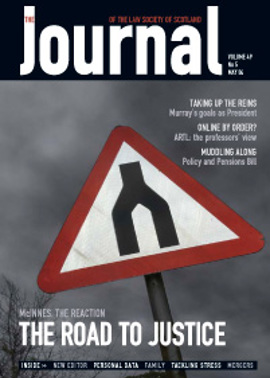Holding our breath
Sparks fly for retained fighters
By the time of publication we should know the Court of Appeal’s decision in Matthews v Kent and Medway Towns Fire Authority. This is a claim by retained firefighters under the Part-time Workers (Prevention of Less Favourable Treatment) Regulations 2000 and is the first time the Regulations have been considered at this level.
The EAT’s decision was based on their belief that the retained firefighters were not employed on the “same type of contract” as their full time colleagues since the retained firefighters were a category of worker whom it was reasonable for the employer to treat differently than other workers on the ground that they have a different type of contract (regulation 2(3)). This has always seemed a somewhat circuitous provision and it is to be hoped that the decision will provide useful guidance as to its interpretation.
Early Lords hearing for Dunnachie
It would be fair to say that the Court of Appeal’s recent decision in Dunnachie v Kingston-upon-Hull City Council caused something of a stooshie in employment law circles, turning more than 30 years of what had seemed settled law completely on its head. The decision of the majority of the court was that damages for non-economic loss occasioned by the manner of dismissal should be recoverable, opening the way for injury to feelings awards in unfair dismissal cases.
The House of Lords is scheduled to hear the further appeal on 19 and 20 May 2004, and its judgment is eagerly awaited. I believe cases are currently being heard under reservation of the Dunnachie point and then, if the appeal is unsuccessful, parties will return for that issue alone to be considered.
Rolled-up trouble
The rumpus over rolled-up pay also rumbles on, this time all the way to the ECJ. So far we have had:
- a decision of the Court of Appeal sitting on the fence to some extent, but saying that there must be agreement between worker and employer before holiday pay can be included in weekly pay (Gridquest Ltd v Blackburn);
- a decision of the Court of Session stating that the practice of rolled-up pay is unlawful (MPB Structures Ltd v Munro); and
- a decision of the EAT in England stating that rolled-up holiday pay could be lawful where the contract provided for a basic wage or rate topped up by a specific sum or percentage in respect of holiday pay (Marshall’s Clay Products Ltd v Caulfield).
Given this mixed bag of authorities it would be fair to say that confusion reigns at present and an employment tribunal in Leeds recently found itself in the unfortunate position of preferring the decision of the Court of Session in Munro, but not being bound by it, instead being bound by the EAT decision in Marshall’s Clay with which it did not agree.
The chairman has therefore taken a path which will hopefully be of benefit to more than just his own furrowed brow, referring two questions to the ECJ, these being:
- Is article 7 of the Working Time Directive consistent with provisions of national law which allow pay for annual leave to be included in a worker’s hourly remuneration and paid as part of remuneration for working time but not paid in respect of a period of leave actually taken by the worker?
- Does article 7.2 preclude the national tribunal from giving credit to an employer for such payments when it seeks to give to the applicant an effective remedy according to powers contained in the national regulations?”
The ECJ’s decision could in time prove very costly for employers who operate a practice of rolled-up pay and advisers should keep a close eye on developments in this area.
Waiting for the big one
In addition to the case law, the main legislative development to be aware of is the Information and Consultation Regulations. The former TUC General Secretary has stated that these Regulations will amount to “potentially the most significant piece of employment legislation ever to be introduced in the UK”. With that in mind, all has been decidedly quiet on this front since consultation on the draft Regulations closed back in November last year. However, I understand that the final version is being worked on at present and is expected to be released in May or June.
This is just a snapshot, but it shows that there is much to be looking out for in the weeks and months ahead.
Jane Fraser, Head of Employment Pensions & Benefits, Maclay Murray & SpensIn this issue
- Thank you to a great team
- Justice and independence
- Take the low road
- Pensions crisis, what crisis?
- Whale... or rabbit?
- Blissful union?
- Cracking up
- The big 3
- Personal attention
- Looking forward to retirement?
- Grasping the issues
- Credit balance
- No warrant for refusal
- Holding our breath
- Scottish Solicitors' Discipline Tribunal
- Personality rights: a brand new species?
- Beware of Companies House disclaimers
- Website reviews
- Book reviews
- The new law of real burdens
- Deductions of title
- Waste paper?






